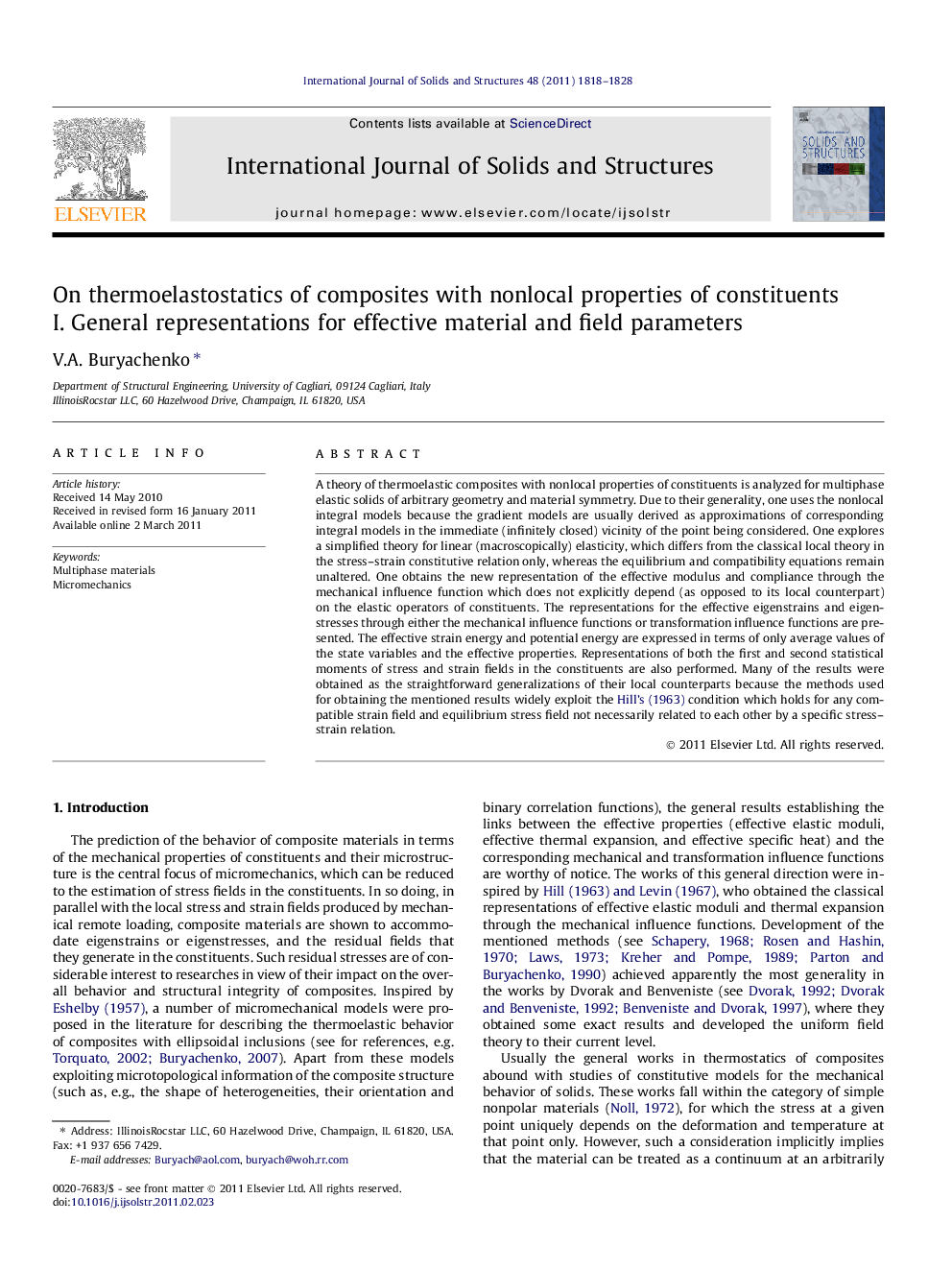| Article ID | Journal | Published Year | Pages | File Type |
|---|---|---|---|---|
| 278648 | International Journal of Solids and Structures | 2011 | 11 Pages |
A theory of thermoelastic composites with nonlocal properties of constituents is analyzed for multiphase elastic solids of arbitrary geometry and material symmetry. Due to their generality, one uses the nonlocal integral models because the gradient models are usually derived as approximations of corresponding integral models in the immediate (infinitely closed) vicinity of the point being considered. One explores a simplified theory for linear (macroscopically) elasticity, which differs from the classical local theory in the stress–strain constitutive relation only, whereas the equilibrium and compatibility equations remain unaltered. One obtains the new representation of the effective modulus and compliance through the mechanical influence function which does not explicitly depend (as opposed to its local counterpart) on the elastic operators of constituents. The representations for the effective eigenstrains and eigenstresses through either the mechanical influence functions or transformation influence functions are presented. The effective strain energy and potential energy are expressed in terms of only average values of the state variables and the effective properties. Representations of both the first and second statistical moments of stress and strain fields in the constituents are also performed. Many of the results were obtained as the straightforward generalizations of their local counterparts because the methods used for obtaining the mentioned results widely exploit the Hill’s (1963) condition which holds for any compatible strain field and equilibrium stress field not necessarily related to each other by a specific stress–strain relation.
